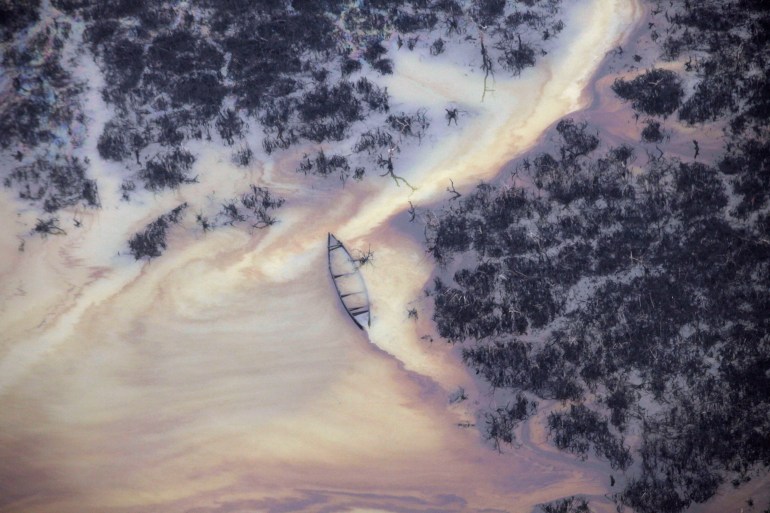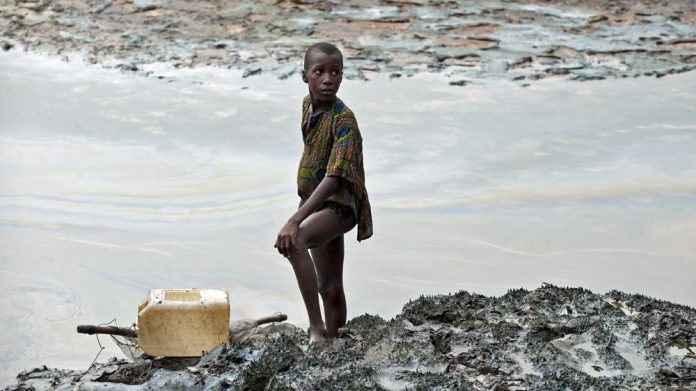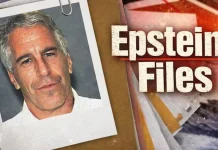[ad_1]
Lagos, Nigeria – It has taken 13 years for Fidelis Oguru to get the victory that he and a group of other farmers in Nigeria’s oil-rich Niger Delta region so badly wanted.
On Friday, the Court of Appeal in The Hague ruled that Shell’s Nigerian subsidiary, the Shell Petroleum Development Company of Nigeria (SPDC), was at fault for environmental degradation caused by pipeline leaks in the villages of Oruma and Goi in the Niger Delta region.
The Dutch court ordered the Nigerian arm of the British-Dutch company to pay yet-to-be-decided compensation to the affected villages.
“I am very happy and I thank God,” said Oguru, an 80-year-old farmer and one of the plaintiffs from Oruma village.
He told Al Jazeera oil leaks from pipelines have devastated farmland and waterways in the region, and the SPDC’s reluctance to replace old pipelines had led farmers to watch in angst as their crops such as cassava and plantain succumbed to oil pollution and their livelihoods eroded.
Frequent appeals to the SPDC for compensation and environmental clean-up had been futile, he said.
In 2008, four farmers from the villages of Oruma, Goi, and Ikot Ada Udo received backing from an environmental campaign group, Friends of the Earth Netherlands, to file lawsuits against Shell in a Dutch court over oil spills related to the SPDC between 2004 and 2007.
“In 2013, I went to the Netherlands when the judgement was on and the [court] ruled against us,” Oguru recalled.
SPDC and other oil companies often blame oil leaks on sabotage. Under Nigerian law, applied in the Dutch civil case, the company is not liable if the leaks were the result of sabotage.
But on Friday the court found it could not establish “beyond a reasonable doubt” that saboteurs were to blame for leaks that spewed oil over an area of a total of about 60 football pitches in Oruma and Goi.
Although the court ruled that sabotage was to blame for an oil leak in the village of Ikot Ada Udo, it said the case over whether Shell was liable would continue.
Eric Dooh, a 50-year-old plaintiff from Goi, told Al Jazeera the victory meant “oppressed people” such as farmers from the Niger Delta can take their “rightful place in society”.
He said the ruling sets a “world-class precedent” that could a be a turning point to give hope to those who have similar cases against multinational oil companies that they can get justice regardless of “the number of years and tribulations that they have been going [through]”.
“Other multinational companies must also know that they must adhere to international best practices in their oil exploration activities and respect fundamental human rights,” he said.
“The victory is not for only me,” Dooh added. “It is for the entire Niger Delta region.”
 Friends of the Earth supporters unfold a banner outside the district court in The Hague, Netherlands [Mike Corder/AP]
Friends of the Earth supporters unfold a banner outside the district court in The Hague, Netherlands [Mike Corder/AP]
Nnimmo Bassey, a Nigerian environmental activist, also believes Friday’s ruling is the beginning of “a process that should bring hope … [because] lies told by the [oil] industry cannot hold water forever”.
“The victory means no matter how long an injustice prevails, justice must come one day and it means that the people did not persist for nothing for 13 years,” Bassey, former executive director of Environmental Rights Action, a local advocacy NGO, told Al Jazeera.
Shell discovered and started exploiting Nigeria’s vast oil reserves in the late 1950s and has long faced heavy criticism over oil pollution and for allegedly close and enabling ties to the government.
Bassey said vast swaths of the Niger Delta remain “sacrifice zones” and there are still oil spills and contamination on a daily basis in many areas. He also cited a fire at an oil well in Ondo State that has been raging since May with “no stoppage, no clean-up”.
The only place a serious effort is being made to carry out an environmental clean-up in the Niger Delta is in Ogoniland, Bassey said, and even that is “very tentative and not yet comprehensive”.
Meanwhile, Shell said it was dismayed by Friday’s ruling as it believes the spills were caused by sabotage.
“We are … disappointed that this court has made a different finding on the cause of these spills and in its finding that SPDC is liable,” the company said in a statement.
The SPDC said in a statement: “Like all Shell-operated ventures globally, we are committed to operating safely and protecting the local environment.”
But Bassey said sabotage had been ruled out in many instances of oil pollution in the Niger Delta.
“Saying the spill was caused by sabotage was a formula for escaping responsibility, which has to be debunked,” he said.
 Oil on the creek water’s surface near an illegal refinery in Ogoniland, outside Port Harcourt, in Nigeria’s Delta region [File: Sunday Alamba/AP]
Oil on the creek water’s surface near an illegal refinery in Ogoniland, outside Port Harcourt, in Nigeria’s Delta region [File: Sunday Alamba/AP]Too little, too late?
Despite the ruling, Dooh lamented the damage done – he said oil leaks in Goi had ruined his fish farm and destroyed his father’s bakery.
Like many others, he has been forced to move with his family to a nearby town to escape the contamination.
“It has been very difficult and hectic for me to cope,” he said.
The successful plaintiffs are now waiting to see how much compensation they will receive.
Dooh said he hopes to use the funds to restore his damaged land and businesses, as well as building a school.
“If I reinvest [in my village], it will give me the opportunity of creating job opportunities for the people.”
But for Oguru the compensation will likely come too late.
He said Shell had destroyed all of the land he used for his fish farms. “The loss [caused by the spill] has given me a very bad setback that has affected my means of livelihood – farming and fishing,” Oguru said.
In 2018, he started developing eye problems and became blind in 2020. His age and health problems will likely prevent him from using the compensation to restore his land.
“I am stranded.”
[ad_2]
Source link











